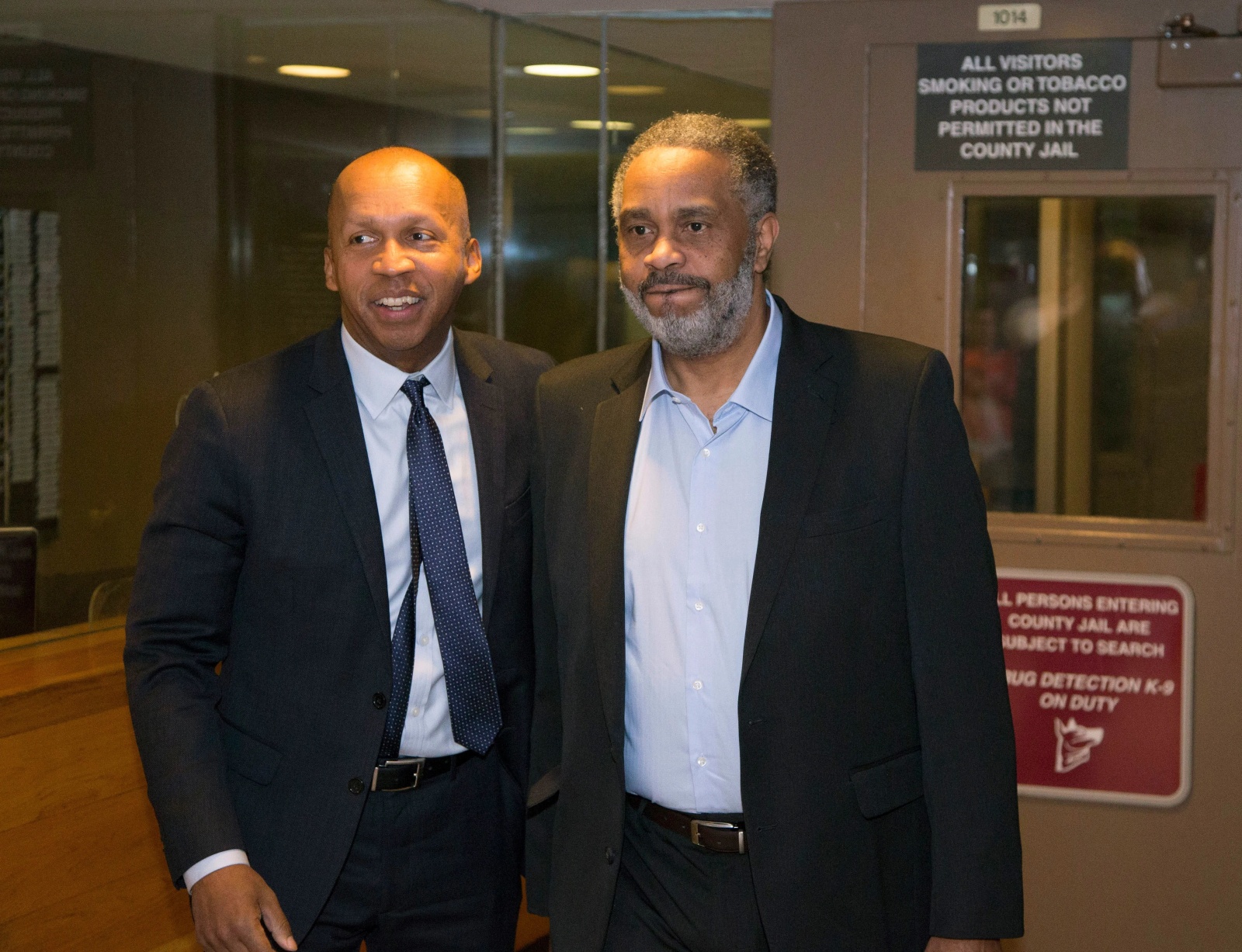
Bryan Stevenson lives a fairly ascetic existence, devoting his time and energy to fighting institutional racism and social injustice as a lawyer. Yet Stevenson is turning into a media star: a best-selling author and the founder of a museum and memorial, he is now the subject of a new documentary, “True Justice”, which debuts Wednesday on HBO. Next up, Michael B. Jordan, of “Creed” and “Black Panther” fame, plays Stevenson in a feature film.
As founder of The Equal Justice Initiative (EJI) in Montgomery, Al., Stevenson, 59, made his name defending the wrongly convicted and unfairly sentenced, overturning numerous sentences and winning cases before the Supreme Court. But individual wins were not enough to transform America. “I realized about a decade ago we were going to have to get outside of the courts,” he said. “We have to do a better job of confronting our history.”
Stevenson’s thoughtfulness and eloquence on the immoral connections he sees between government-sanctioned institutions of slavery, segregation, lynching and mass incarceration, make him an ideal messenger. He started with his book, “Just Mercy.”
“We practiced silence for a very long time and it left us vulnerable to new manifestations of bias and bigotry and discrimination,” he explained, adding that teaching Americans true history is the only way to gain the political will for reform.
“If people sat down with a child who’d been abused in an adult prison because he was placed in there at 14, I think they’d agree we need to get children out of there,” continued Stevenson. “I believe that books and documentaries and films play a critical role in changing people’s consciousness.”
“Just Mercy” moved Peter Kunhardt, an award-winning documentary filmmaker who lives in Chappaqua to make “True Justice” with his sons Teddy and George. They let Stevenson, who is deliberate in his words and ideas, set the tone. “It’s not paced like a traditional documentary or television,” Kunhardt said, “but if we picked up the pace people would miss a lot.”
In the film, Stevenson argues that white Americans who participated in lynchings were terrorists and blacks who migrated north were exiles and refugees. “The scale of lawlessness and mob violence that killed thousands of African-Americans in these very public ways was terrorism. They brutalized the millions of black people who had to cope with that menace and that threat and that trauma,” he said.
He adds that whites never shouldered blame as “perpetrators of the violence, socializing young people to hate, to reject the humanity of people who looked different.”
Kunhardt says the filmmakers and Stevenson discussed the film’s visual tone at length. “We took care to show the gruesome realities of lynchings but not to exploit those images,” often lingering longer on the sight of whites reveling in the horrific events.
“True Justice” also recounts the saga of Anthony Ray Hinton, who spent nearly three decades on death row in Alabama for a crime he did not commit thanks to an all too common mixture of racism, callousness and incompetence at every level.
“This was not just a mistake, it was racism,” Hinton told the Daily News, still outraged four years after being freed thanks to the EJI’s work. “The death penalty is a new form of lynching. My story bears witness to this broken system.”
Hinton calls Stevenson “extraordinary” both as a lawyer and person. “If I could clone one human being it would be Bryan Stevenson,” he said.
While that’s not possible, Stevenson seems to be everywhere. He spent years building The Legacy Museum: From Enslavement to Mass Incarceration and The National Memorial for Peace and Justice, which honors the 4,400 African-Americans lynched by whites. The film culminates with their opening in Montgomery last year.
The documentary does not explore recent killings of unarmed blacks by police, battles over Confederate statues, the neo-Nazi march on Charlottesville. “My priority was to provide context,” Stevenson explained. “If you understand the history then you’ll understand why police shootings of unarmed black people is so devastating to communities of color. You see the threat posed by the politics of fear and anger in new ways when you connect it to these episodes of horrible lawlessness and immorality in American life.”
While Kunhardt edited out discussions of recent events, he has arranged with HBO to make the all interviews available for free online in six months, along with transcripts and teacher training for educators looking to use “True Justice” in the classroom. “This was on our minds from the start,” he said. “Bryan’s work is so important to so many Americans and we want to inspire young people who don’t know the history.”
They think even more young people will be excited about the documentary after the feature film comes out. “At first I was apprehensive about a movie but I recognized it would be another platform to get people thinking about these issues,” Stevenson said, adding with a laugh that “I told Michael Jordan, ‘You should have your Creed body when you play me.'”